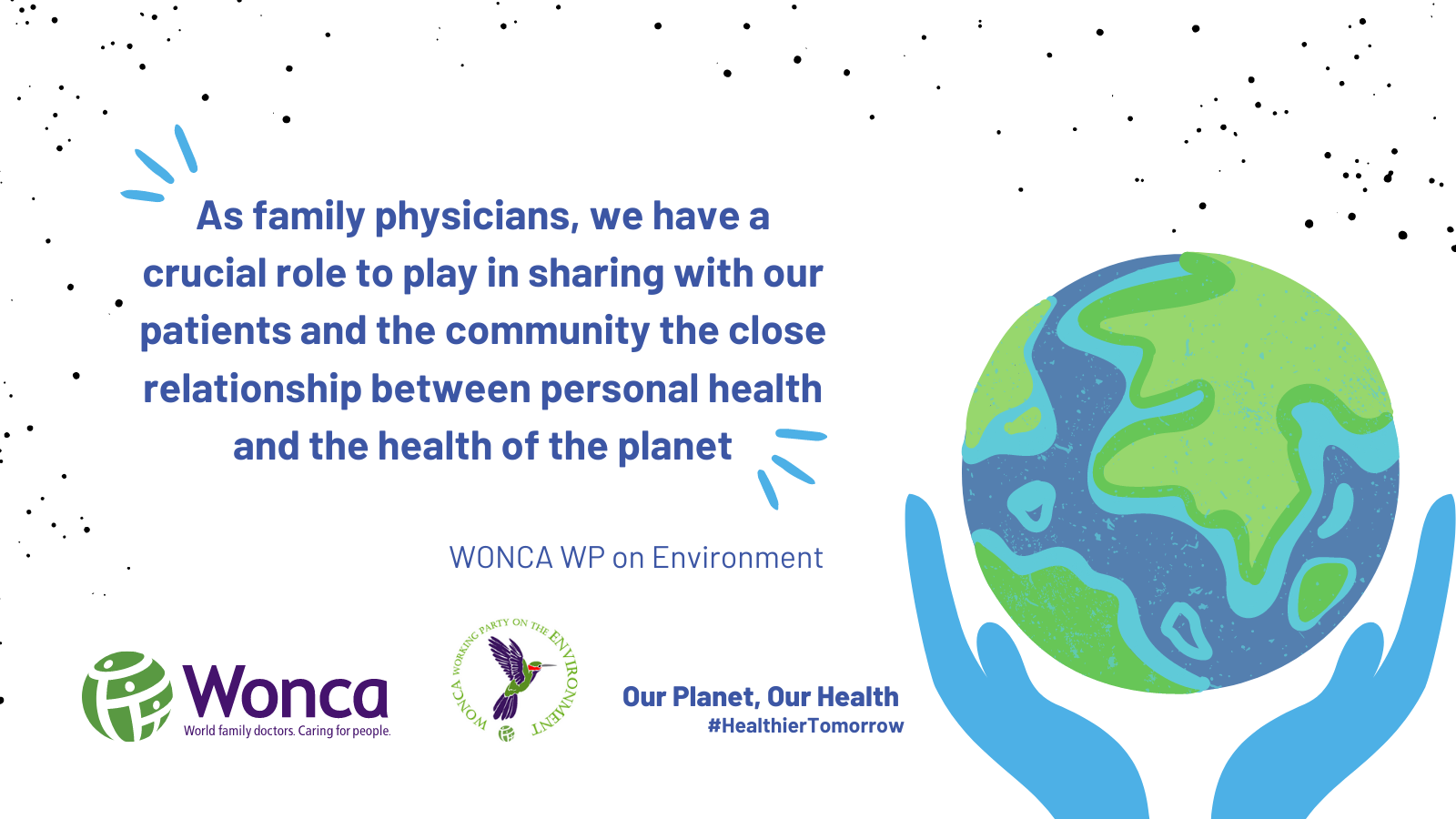World Health Day 2022: One minute for our Planet

The theme of World Health Day 2022 "
Our Planet, Our Health" makes us aware of the importance of caring for our planet as an essential habit in caring for our own health and the community.
We, as family physicians, have a crucial role to play in sharing with our patients and the community the close relationship between personal health and the health of the planet. Proximity, longitudinality, and comprehensiveness are crucial values of family medicine in the care of citizens and are also essential values to improve the health of the planet. Our job is to explain and share the close connection between personal and planetary health.
From our practice, we can raise awareness and promote caring behaviours for the planet. Small gestures count every day to achieve this.
We are many family doctors worldwide, visiting many patients every day, and we participate in health promotion activities in the communities we serve. These are crucial opportunities to raise awareness about caring for the planet: start a conversation with our patients about the impact of our habits on planetary health; give concrete examples such as recycling materials, equipment and technology, consuming local food, reducing meat consumption, walking or cycling versus using the personal car, promoting public or collective transport, reducing the use of paper in consultations, reducing the use of medicines in pressurized containers, recycling medicines in pharmacies.

All these efforts count to avoiding high concentrations of pharmaceuticals in the water we drink, our rivers, vegetables and fruit crops; reducing microplastics in our seas; lowering the pollutant particles in the air, preventing an increase or worsening of respiratory problems.
The central question for reflection is are “producing” health if we are not looking for the environmental consequences of our actions.
In 2020, England’s National Health Service became the world’s first health service to commit to net-zero emissions. By this year’s World Health Day, there are now over 50 countries committed to being Sustainable Low Carbon Health Systems and 18 countries with net-zero healthcare targets. Interventions to get the NHS to Net Zero range from improving energy efficiency in hospitals, to installing solar panels, to developing the world’s first hydrogen-electric ambulance, to working with its 80,000 suppliers to ensure they have carbon reduction plans with the NHS’s own targets. Primary care is leading the way in terms of implementing net zero interventions. The Green Impact for Health Toolkit provides practical tips for general practices to reduce their environmental footprint across 13 different areas, with the opportunity to reach a Bronze, Silver, Gold or Carbon rating. Metered-dose inhalers contribute a substantial proportion of primary care emissions. The Greener Practice guide, How to reduce the carbon footprint of inhaler prescribing? A guide for healthcare professionals supports better patient management of asthma and COPD alongside patient-focussed prescribing to switch to dry powder inhalers where appropriate. General practices can also estimate their non-clinical emissions from energy, travel, IT, waste, business services and procurement, using this calculator from SEE Sustainability.
If every family doctor spends one minute communicating the close relationship between personal and planetary health, the action will multiply for the benefit of humanity and our planet.
Start sharing messages about the health of the planet and our health with your patients today!
To get more ideas, you can join the online course about Planetary Health of the
WONCA WP on Environment.
We believe that evidence-based medicine and planetary health knowledge can promote a minute for the planet in the clinical encounter.
Author:
Dr María Pilar Astier Peña, WONCA Excutive Member at Large
In collaboration with:
Dr Özden Gokdemir, Chair of WONCA WP on Environment
Dr Enrique Faceto de Barros
Dr Alice McGushin
Dr Mayara Floss